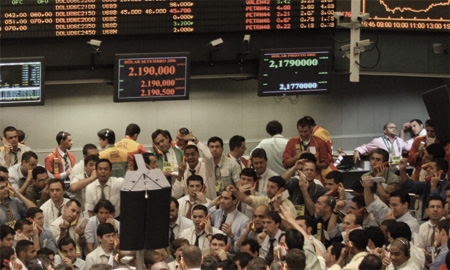Brazil’s economy, the eighth largest in the world, was one of the least affected by the crisis that shook the U.S. and other economies in 2007 and 2008. The South American country suffered a recession in 2008, but was one of the last of the big economies to begin to contract, and after two quarters of shrinking gross domestic product, it was one of the first to begin to expand again.
The crisis began with problems in banks in the U.S., and spread like an infection through the world financial system, causing a global recession in 2008. Brazil can thank the strength and resilience of its own banking system, which helped protect the rest of the economy, for its relatively mild downturn.
After decades of high inflation and economic instability, Brazil’s banks gained the knowledge and flexibility needed to weather a crisis, and so were ready to deal effectively with the problems when they arrived, according to Abramo Douek, chief executive officer of
Banco Rendimento S.A.
“The history of crisis in Brazil before the presidency of Fernando Henrique Cardoso has helped prepare us for any crisis,” Mr. Douek says. “When we see a crisis coming, we can then foresee the end of it. That makes the Brazilian market so well prepared. The experiences we have already had in our system made it solid and prepared for this past crisis.”
‘The growth we are experiencing in Brazil is not because of an increasing middle class, but because of social inclusion’
ivo lodo President of Banco BVA S.A. ‘I have been in the financial market for 40 years and for the first time I see professionals in the industry receiving offers to double their salary to change companies. [some firms are] willing to pay almost any price’
ABRAMO DOUEK CEO of Banco Rendimento |
Now, with Brazil’s economy booming again, its banks are reaping the benefits of their solidity. Last year they saw outstanding growth in profit, revenue and credit, with net income at Bradesco climbing 25% in 2010 from 2009, and an increase of 21% in Banco do Brasil’s credit portfolio.
The outlook for growth is also excellent. After expanding 7.5% last year, GDP will increase another 5% this year, according to the government’s estimate. Annual credit growth, while slowing, will still reach 13% this year, the central bank forecast earlier this year.
The period of extended economic growth, even with the two quarters of contraction in 2008, has led to sustained new job creation, an increase in personal wealth, and rising demand for consumer goods and consumer credit to buy them. Brazil’s banks are playing a big role in helping poorer Brazilians gain access to credit for major purchases.
“The growth we are experiencing in Brazil is not because of an increasing middle class, but because of social inclusion,” says Ivo Lodo, president of Banco
BVA S.A.
According to Mr. Lodo, Brazil’s credit model has recently focused on consumption rather than production “with credit used by consumers to buy cars, houses, clothes and household goods.”
Indeed, the greater spending power of the growing working class is spurring demand for a wide range of goods and services, creating a virtuous cycle that leads to more new jobs and rising wealth. This cycle is already apparent in various different sectors of the economy.
“As the lower class starts to enjoy employment stability and higher spending power, they can enter product markets that previously had been only for the middle or upper-middle class,” says Roger Ades, product director of Banco Rendimento. “There are various examples of this in the food sector, for example in the growth of demand for yogurt. The same people are not eating more yogurt every day now, there are more people eating it.”
The success of the government and the central bank in controlling inflation is also opening up new markets and opportunities for Brazilians. A few decades ago, it was impossible to get a mortgage for more than a year or two, but now banks offer home loans payable over up to 30 years.
Economic growth around Brazil and the strength of its banking system are helping consolidate São Paulo’s status as Brazil’s, and increasingly South America’s, financial capital. Most of the country’s biggest banks are based there, and all have offices there. Foreign banks are also choosing the city of more than 11 million people as their Brazilian or South American base.
The city is also the home of the BM&FBovespa, one of the world’s five biggest stock markets, with a capitalization of more than US$1.5 trillion at the end of 2010. Most of Brazil’s biggest companies trade on the exchange, making it a magnet for investors seeking to profit from the country’s intense economic growth.
The concentration of the financial industry in São Paulo, and the strong growth of the country’s banks, have also made the city a job-creating locomotive, with the expected effect on salaries in the industry.
“I have been in the financial market for 40 years and for the first time I see professionals in the industry receiving offers to double their salary to change companies,” says Mr. Douek. “The need for highly qualified workers has led companies to be willing to pay almost any price.”

0 COMMENTS